I'm Timaholic™ with http://www.TalkAboutShit.com I'm at Denver Day 4 Crypto. Here is an overview of the morning sessions.
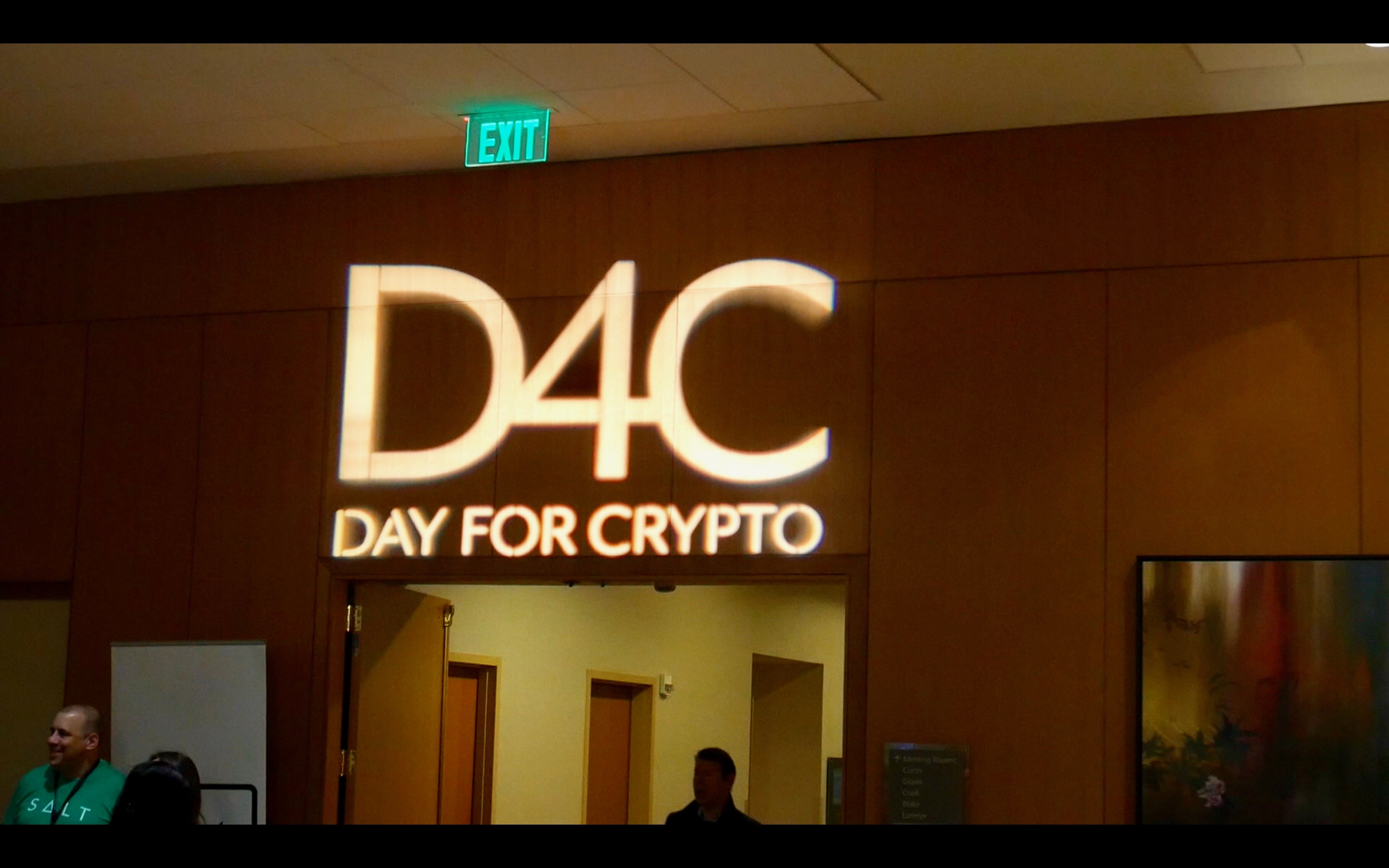
First up: Caleb Slade (Co-Founder | Salt Lending) - Overview of Crypto Landscape
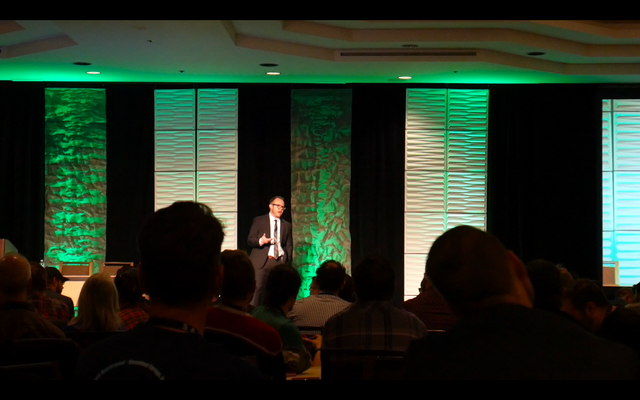
Caleb got everyone warmed up by talking about how technologies have changed the world and human behavior over time. He mentioned the printing press and how before that invention most people didn't have access to information at a large scale. He talked about the emergence of crypto as the next wave of human evolution. He asked 'How many people here haven't purchased crypto currency of any kind?' (less than 10 people in the room raised their hands) Caleb then stunned mentioned how he had never been to a conference where the majority of people own crypto.
Next Up: Colin Andrews (CEO | Learn Crypto Fast) - How to Buy / Sell Crypto
Colin aimed his talk at people new to purchasing cryptocurrencies. He brought up the pain of onboarding new users with the example of the difficulty of authing to Coinbase by uploading identification documents. That process can take days to complete. He also brought up a number of exchanges and other options to purchase crypto like Local Bitcoins. He emphasized the fact that this space is still new and anyone paying attention now is still ahead of the curve.
Third Session: Ken Holder (CTO | Keepkey), Paul Puey (CEO | Edge), & Caleb Slade (Co-Founder | Salt) - Cryptocurrency Wallet Guide
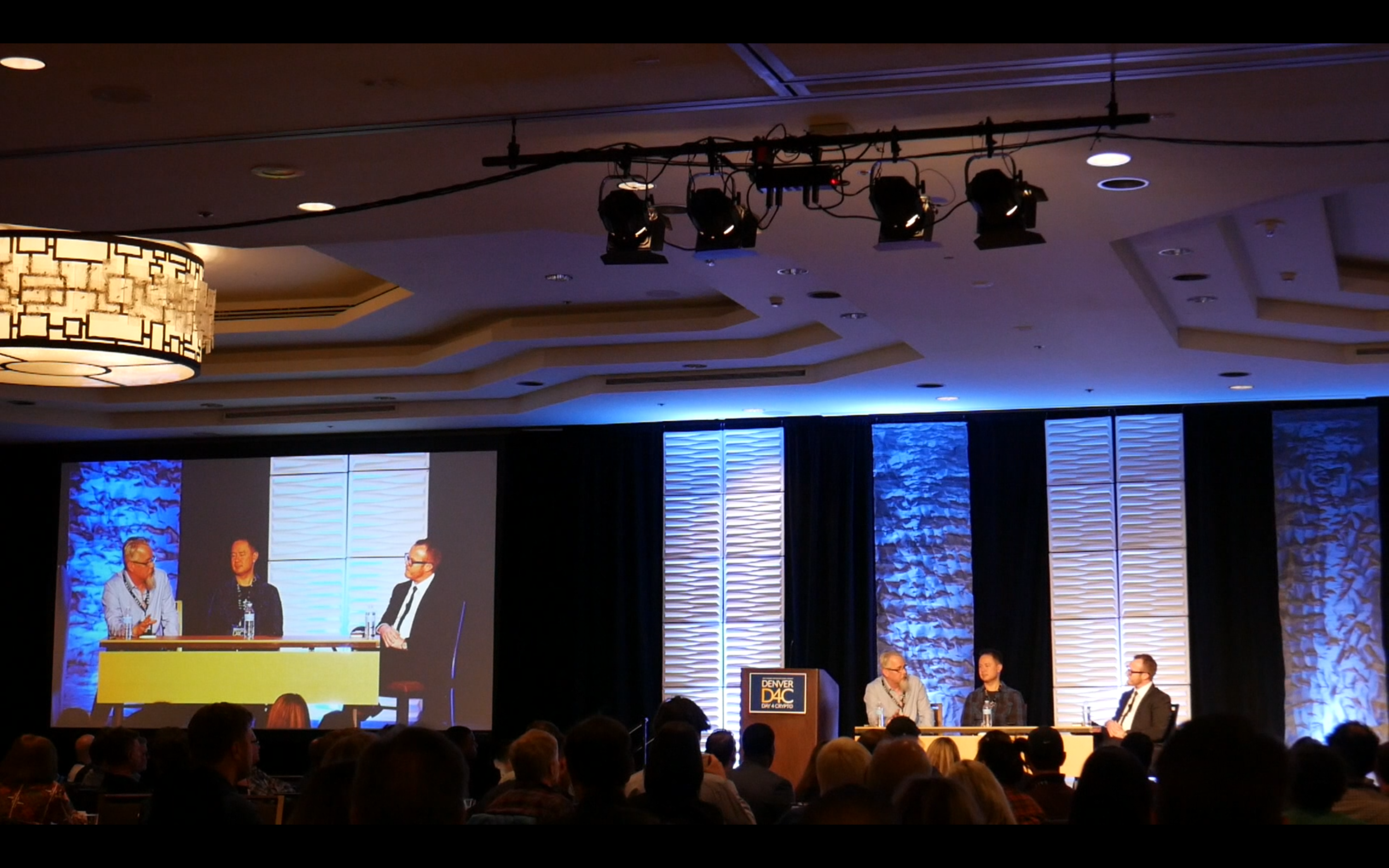
This talk began by talking about why hardware wallets are important. They also talked about how having multiple hardware wallets is important. This way you can take a wallet with a small amount of funds around to be able for daily use and another wallet that holds the major portion of a person's holdings. 'You don't see people walking around with their retirement funds in their pocket.' Caleb then asked the people who haven't purchased crypto to stand up again and gave them business cards. He said he will make sure they leave the conference with cryptocurrency by giving them some.
Next they had a discussion about multi sig. Caleb described it as the ability to benefit from who you trust. By trusting someone to hold the other signature you can make sure your funds don't get spent without your knowledge. This allows you to use the trust of your friends or family to secure funds instead of a bank.
Paul went on to talk about how if someone submits a resume with banking experience that matters less to him than skills and experience having to do with technology and innovation. 'How will you be able to bring a fresh perspective to this space by coming from a space with an outdated business model.'
'The market needs a way to transact. If people lose faith in the government issued currency then the market will find other ways to exchange value.'
Paul then spoke about how building technologies on top of cryptocurrencies such as predictive markets (Auger) changes the way people utilized and gather data.
Next Up: Marshall Hayner (CEO | Learn Crypto Fast) - Changing The Way We See Money
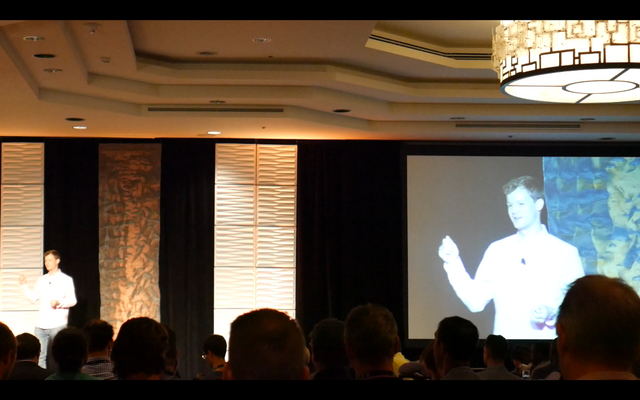
Marshall started off talking about making money fun. He talked about his past and how he used to send Dogecoin around with his friends. He talked a little bit about the MetalPay payments platform and how it plans to make money fun again. He went into detail about how it rewards people to use the app and hold the currency. When large numbers of people are incentivized to hold the Metal token the value can reflect this type of behavior. I'm going catch up with Marshall for an interview that I will post later.
Next Up: Michael Perklin - Securing Business and Personal Lines
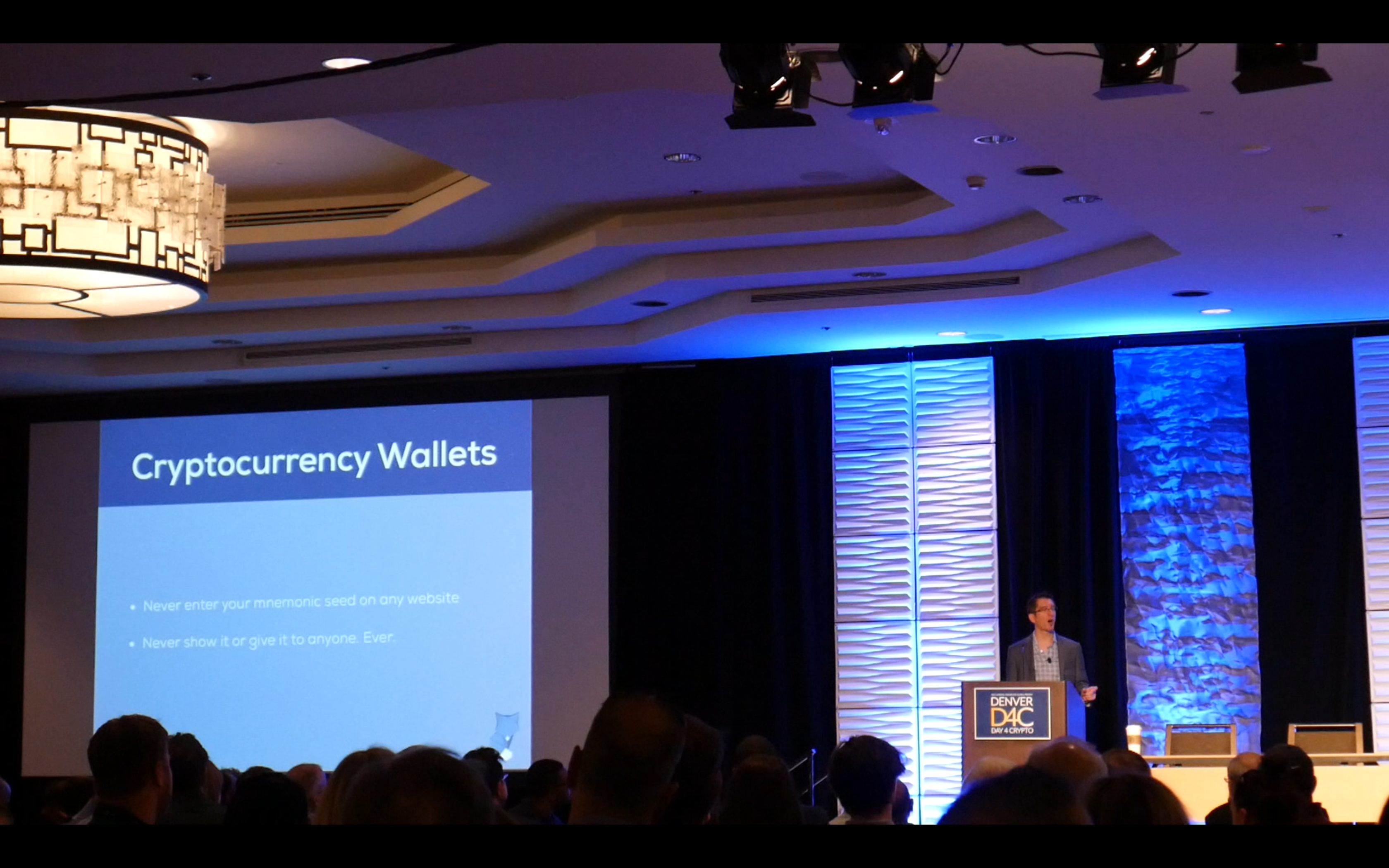
Michael began by talking about directed phishing attacks. He recommends never listing the full name employees on company websites. This way directly targeted attacks towards individuals within an organization as not as easy to pull off. He then stresses not putting too much personal information into third party websites. If they get hacked then the hacker has potentially a large amount of personal data about you.
He then talks about the importance of 2 factor authentication. 2FA is the first level up in securing your data. He mentions hardware 2FA devices and how they provide an added level of security. Michael then stressed the importance of never using phone based 2FA solutions. He provides the example of how easy it is for a phishing expert to get access to your phone account by someone pretending to be you to your phone service provider. 'Never link your phone number to any account.'
Michael does not advocate using biometric technologies to secure data. 'Why use a fingerprint that is left on every piece of glass you touch.' Also every biometric sensor has an error threshold built in. This means if the data received by the biometric sensor is 'close' it's possible to gain access to the data secured by the biometric security mechanism.
Next Michael goes into how to create a good password. Never use a password algorithm. Never use movie quotes or song lyrics. If your password is made from data available on the internet, hackers are already scraping that data to create password breaking software. He does recommend making passwords from personal memories. 'Describe your childhood bedroom.' And if you forget the password, just recall the memory you created the password from.
Michael advocates using hardware wallets, fire proof safes, and tamper evident mechanisms. Never enter your wallet seed into websites.
Next Michael talked about Prism.exchange. This product can secure multiple crypto assets through one ethereum key through smart contracts.
Crypto Currency Security Standards (CCSS)
Next Up: Eiland Glover - Stable Coins 2018
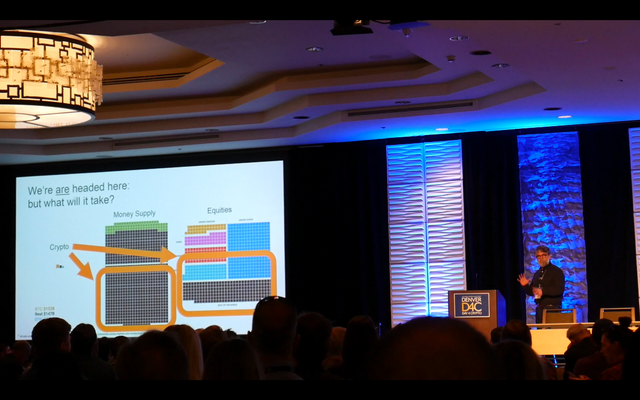
'We are still early. We have not begun the mass adoption of cryptocurrency.' Eiland spoke about the importance of making the onboarding process easier. He referenced how AOL sent CD's to eary mailbox in America with step-by-step instructions on how to get on the internet. Without companies like AOL the internet would not have been able to gain mass adoption, Eiland argued.
One of the biggest problems that Eiland is highlighting in cryptocurrency is the volatility of the coins/tokens. kUSD token mints new coins and burns coins based on demand. This allows the price to stabilize as demand fluctuates. If a token is not backed by a physical asset then the token's algorithm that manages token supply needs to be efficient and verifiable.
Last Morning Session: Erik Vorhees, Shawn Owen, Peter Vessenes, Caleb Slade - The Future of Blockchains
'When is decentralization not right?' - Caleb
'There are a lot of things that should be centralized. There is a line where decentralization is not optimal.' - Erik Vorhees.
Erik then talked about how money should not be centrally planned or controlled. He mentioned how the US is capitalist system in theory. So why is the money centralized?
'Most people are not out right communist. I like to use this phrase, Separating Money and State. I've always seen money as an institution even more important than religion. Not everyone is religious, everyone uses money.' -Erik
'Building on top of these systems is as important as just creating money using the blockchain.' - Shawn
'Is there ever a good regulation?' - Caleb
'Absolutely, but I believe the market should be the mechanism doing the regulation.' -Erik
HUGE APPLAUSE
A large portion of this panel was spent discussing regulations.
'You know why bitcoin hasn't failed yet? Because I can send any amount of money to anyone in the world and no one can stop me.' -Erik
Erik talked about how the separation of church and state and science and state were painful separations. Those were dark periods. He predicts that people and organizations pushing the crypto space forward will face a large amount of push back and attacks from governments and the institutions that benefit from money and state being glued together. He mentioned how the narrative of 'Bitcoin is only for drug dealers' went away when the silk road went down and the price initially went down but then began recovering over time.
Stick around for the 2nd half of the conference covered by your boy Timaholic™ and http://www.talkaboutshit.com
bitcoin blockchain crypto cryptocurrency
apner post ta pore onek valo laglo bro.
Downvoting a post can decrease pending rewards and make it less visible. Common reasons:
Submit
Hi, I upvoted and followed you :)
Follow back and we can help each other succeed! @hatu
My latest post
Downvoting a post can decrease pending rewards and make it less visible. Common reasons:
Submit